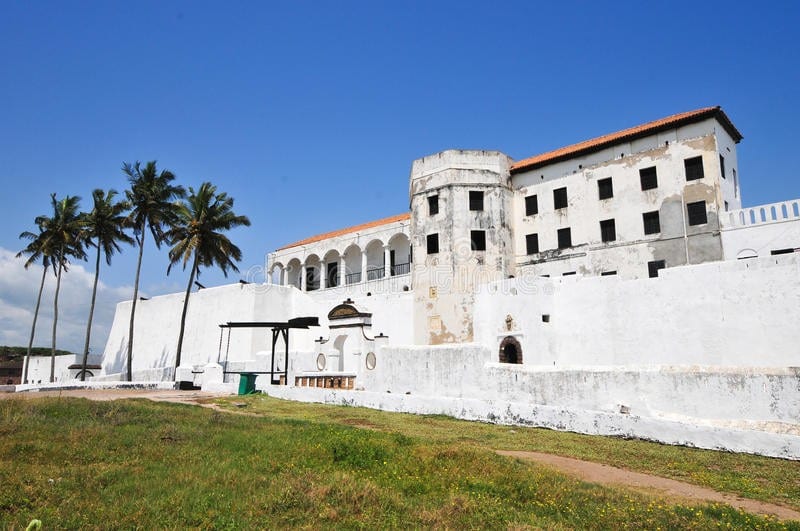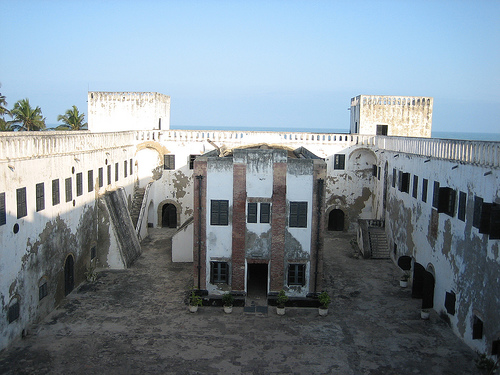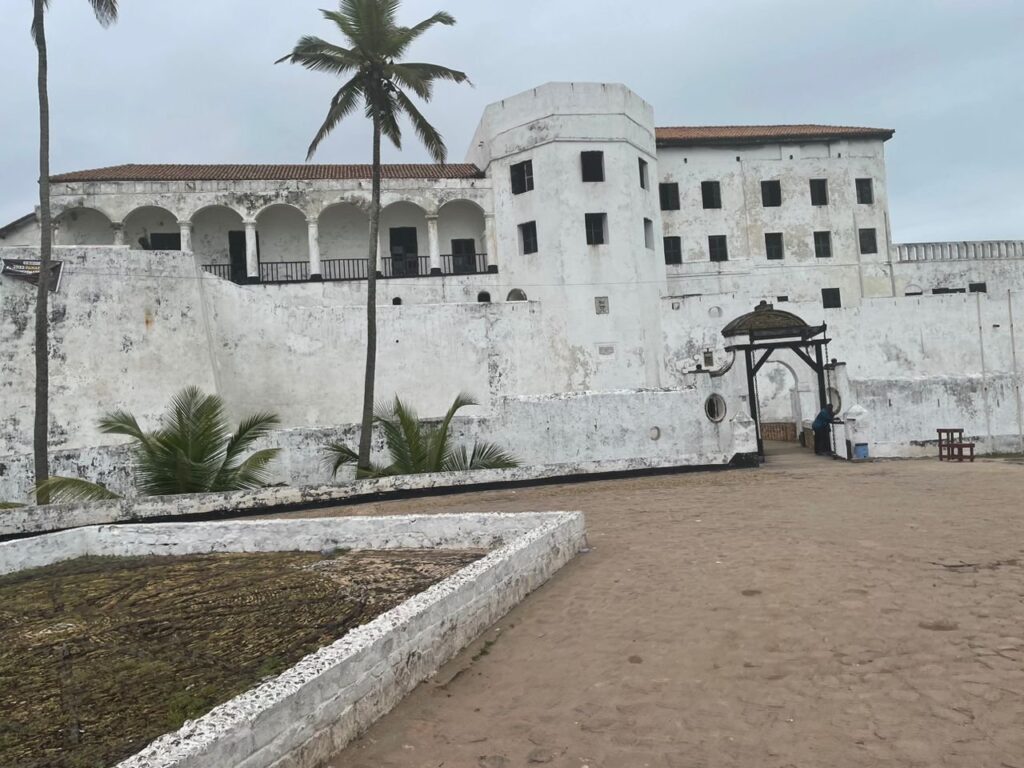
As I approached Elmina Castle, its towering presence seemed to stand as a silent witness to the horrors that had unfolded within its walls. The waves of the Atlantic Ocean crashed against the shore, as if trying to drown out the anguish that still lingers in the air. The weight of history settled heavily on my heart and a provocative hush enveloped the surroundings, as if the very soul of the place was in angry mourning.
And yet, walking through its gates felt like entering sacred ground, my steps, a pilgrimage to pay homage to the suffering endured by black souls.
The walls whispered songs of pain, drained of hopeful notes, stripped of hope and humanity. I listened.
Beneath the facade of beauty of the castle, the dungeons awaited, dark caverns where over 400 men, crammed into suffocating darkness. The hot damp air, unmoving , seemed to echo their silent cries, and i could also see their anguished whispers etched into the stones that held the castle together.
The dungeons are a stark testament to the inhumanity that human beings are capable of inflicting upon one another. It will remain a blot on history, and this fact struck me to my core.
While the enslaved were confined to narrow, overcrowded dungeons with poor ventilation and dire living conditions, the slave masters enjoyed comfortable accommodations, good clothing, and well-ventilated rooms above them.
The presence of a nearby fort for the slave masters’ accommodations adds another layer to this disturbing arrangement. The stark proximity of the fort, built to ensure the security and comfort of those in power, emphasizes the deliberate planning involved in the maintenance of the Transatlantic Slave Trade. It also expressed the vast power imbalance that characterized this era. This glaring juxtaposition highlights the systemic dehumanization and exploitation of the enslaved Africans, relegating them to mere commodities.
On top of the male dungeons, stood a church, a shadow of its role but a reminder of the role Christianity played in encouraging the slave trade. Here I hope the teachings of peace, humanity, and “love your neighbor as yourself” was preached and yet the cruel reality of practice didn’t reach beneath the church’s foundation.
The presence of the church on top of the dungeons is a powerful illustration of the hypocrisy that existed during the era of the Transatlantic Slave Trade. While religious principles of compassion and kindness were being preached, the inhumane treatment of enslaved individuals continued below. This contrast underscores the disturbing capacity of human beings to justify and perpetrate immense suffering while upholding seemingly noble ideals.
The governor, the embodiment of authority, used his power to subject female slaves to a fate unimaginably cruel. He selected some of these women and ordered them to be cleaned, washed down, and shaved, for his selfish carnal desires.
Our tour guide told us that
Women who dared to resist the governor’s advances were subjected to further degradation. Chained naked for 24 hours, they endured the scorching sun, relentless rain and the torment of swarming insects, all while being exposed to the elements. Their bodies and spirits were broken, a horrifying deterrent to any defiance.
As I stood before the infamous “Door of No Return,” a heavy silence pressed upon me. This threshold marked the point of no return, where dreams turned to ashes and futures dissolved into a void of uncertainty. The agony of those who passed through this door was palpable, a visceral ache that gripped my heart.
I, a witness from the future, felt their anguish .
The weight of their suffering bore down upon me and my tears flowed freely, mingling with my pain and the walls enveloping me.
To me, Elmina Castle and dungeons aren’t just a tourist destination. They are a vessel of collective suffering, a crucible of humanity’s capacity for cruelty. A holder of grief, history and hope too.
The sounds of cries reverberated through my soul, and I left Elmina with an emptiness that could only be filled by a burning determination for justice.















